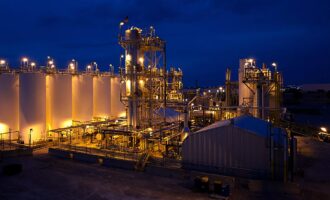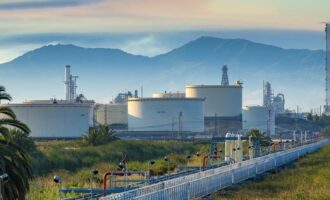
bp produces SAF in Lingen refinery from used cooking oil
bp, the parent company of the international aviation fuel products and services supplier Air bp, has completed an industrial first in Germany producing sustainable aviation fuel (SAF) from used cooking oil. The bp plant in Lingen is the first industrial production facility in Germany to use co-processing to produce SAF from waste and residues.
The Lingen refinery processes the used cooking oil together with crude oil in its existing facilities, which is called ‘co-processing’. The end product is sustainable aviation fuel. Thanks to ‘co-processing’ bp can continue to operate the existing plant with some modifications and extensions and also make a direct contribution to decarbonisation.
“SAF is one of the aviation industry’s key routes to reducing carbon emissions, so this is exciting news for Air bp and for the industry as a whole. Co-processing is an important step in replacing fossil fuel with renewable feedstocks within refineries. This production of SAF at Lingen will open up new supply opportunities in the region,” says Martin Thomsen, CEO, Air bp.
“With the start of this industrial production of SAF in Germany, we are not only positioning our refinery operations in Lingen for the future, but also supporting the aviation industry to decarbonise. To enable this SAF production, we built a new unloading point at the refinery’s harbour, upgraded a tank for storing the renewable raw materials and connected it to the hydrocracker plant, which had previously been modified,” Arno Appel, head of Lingen refinery, says.
SAF can drop straight into existing infrastructure and aircraft and has the potential to provide a significant lifecycle carbon reduction compared to the traditional jet fuel it replaces. Any aircraft certified for using the current specification of jet fuel can use SAF. The production at Lingen is part of bp’s aim to have a global market share of 20 percent for SAF. Refineries can leverage ‘co-processing’ technology at scale for both air and road transport.









